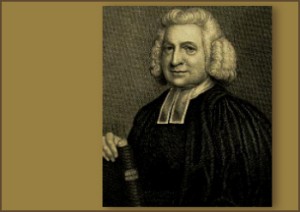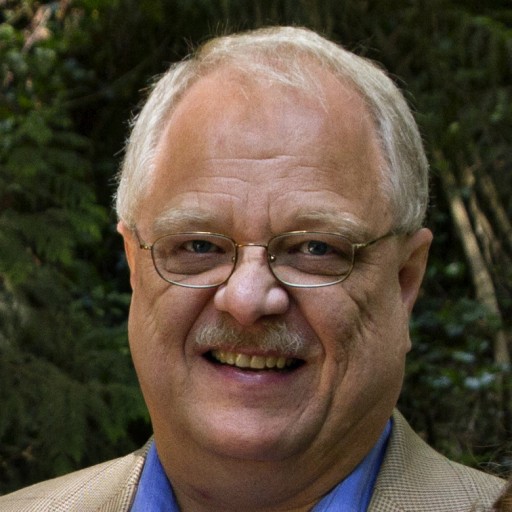Charles Wesley: Word Craftsman
 Haldor listened to the young woman singing on the street corner on a July evening in 1906. Her song about a mother who grieved over a wayward son reminded Haldor of his own mother who had died three years before. She had prayed for him. After the song, the woman invited the crowd to go with her to the Peniel Mission on Fifth and Commercial streets in Astoria, Oregon. Haldor followed the group. Two weeks later Haldor knelt at the mission’s altar and became a new creation in Christ. Haldor Lillenas immediately began writing gospel songs and eventually wrote congregational favorites such as “Wonderful Grace of Jesus” and “My Wonderful Lord.”
Haldor listened to the young woman singing on the street corner on a July evening in 1906. Her song about a mother who grieved over a wayward son reminded Haldor of his own mother who had died three years before. She had prayed for him. After the song, the woman invited the crowd to go with her to the Peniel Mission on Fifth and Commercial streets in Astoria, Oregon. Haldor followed the group. Two weeks later Haldor knelt at the mission’s altar and became a new creation in Christ. Haldor Lillenas immediately began writing gospel songs and eventually wrote congregational favorites such as “Wonderful Grace of Jesus” and “My Wonderful Lord.”
The Peniel Mission was founded by another song writer, Manie Payne Ferguson, and her husband. She wrote the gospel song “Blessed Quietness.” For a while Phineas Bresee, the founding General Superintendent of the Church of the Nazarene, worked with the Fergusons at the Peniel Mission in Los Angeles. Bresee preached the dedicatory sermon for Peniel Hall, the mission building there, using Genesis 32:30 as his text: “And Jacob called the name of the place Peniel: for I have seen God face to face, and my life is preserved” (Gen. 32:30, KJV).
The name Peniel literally means “face of God.” Leaders in the Holiness Movement used the name Peniel because it fully encompassed all that they sought to accomplish through inviting people to meet Jesus. They wanted to guide people to a face-to-face meeting with God.
Wrestling Jacob
Charles Wesley told of his journey to faith in several autobiographical poems. Charles used Jacob’s encounter with God in Genesis 32 to allegorically represent his own conversion experience in a poem titled “Wrestling Jacob.”
Genesis 32 was a favorite preaching text for Charles. Journal entries indicated that he used it at least eight times between 1741 and 1749. On Thursday and Friday, October 6-7, 1743, Charles not only preached on the passage, but reenacted it in a way. On Thursday evening he promised the people “an extraordinary blessing if they would seek the Lord early the next morning.” The people were then sent away to contend with the Lord all night. The next morning people filled the place where they met and some “received the blessing of the Gospel.”
Many have hailed “Wrestling Jacob” as the greatest poem written by Charles Wesley. The Minutes of the Annual Conference of Methodist preachers in 1788, following Charles’ death earlier that year, quoted Isaac Watts as saying “that single poem, Wrestling Jacob, is worth all the verses I have ever written.” That was quite a compliment from the writer of “Joy to the World” and “When I Survey the Wondrous Cross.”
“Wrestling Jacob” may have been Charles’ greatest poem, but it was not his finest hymn. Because the 14 stanzas tell a story, it is not possible to omit stanzas and do justice to the poem. Most congregations struggle to stay engaged in the singing of a hymn that long. To make it more usable, some hymnal editors chopped the poem into parts. The Free Methodist hymnal (1883), for example, allocated the stanzas to three consecutive hymn tunes.
Charles Wesley as a Word Craftsman
Wesley’s university education immersed him in the classics, both languages and literature, until a refined literary style and structure became second nature to him. The story is told of Charles arriving at his destination. He called out, “Paper and ink! Paper and ink!” After he recorded the poem percolating as he traveled by horseback, he looked up and properly greeted his host.
“Wrestling Jacob,” like other Wesley poems, has a sense of going somewhere. Wesley takes the reader on a journey from one spiritual condition to another. The person in this monologue at first does not know the “traveler,” but then hears a whisper in his heart (st. 9), sees God face to face (st. 10), and finally declares “I know thee, Savior” (st. 11). The “wrestler” at first grapples on the ground, then stands (st. 7) and finally leaps and flies (st. 14). This progression through the poem is vintage Wesley. While singing the final stanza of a Wesley hymn you feel like you have arrived.
Subtly, but with great impact, Wesley crafted his poems using a variety of rhetorical methods. For example, in stanza 7 he wrote “faint to revive, and fall to rise; / I fall, and yet by faith I stand.” The repeated “f” sound (alliteration) gives the phrases a melodic sonority. These phrases also contain what seems to be a contradiction (paradox). How can a person “faint to revive” or “fall to rise”?
In stanza 8 Wesley wrote a line that begins and ends with the same word (epanadiplosis): “Speak to my heart, in blessing speak.” This technique emphasizes the urgency of the request. He also placed two incongruent terms together (oxymoron) with “confident in self-despair.”
Wesley closed stanza 8 with the same idea with which he opened stanza 9 (anadiplosis). Stanza 8 ends with the request that the traveler “tell me if thy name is Love.” Stanza 9 begins with the exclamation (ecphonesis) “‘Tis Love! ‘tis Love!” These and other techniques identified through careful observation flowed freely from Wesley’s contemplation.
Likewise, scriptural allusions quite naturally fill the Wesley hymns. Someone has suggested that if the Bible should vanish, it could be reassembled from Charles’ hymns. His hymns are mosaics of scripture from both Old and New Testaments. Consider the scripture allusions in stanza 10.
My prayer hath power with God; the grace
- hast thou power with God (Gen 32:28)
- he had power with God: Yea, he had power over the angel (Hos 12:3-4)
- The effectual fervent prayer of a righteous man availeth much (James 5:16)
unspeakable I now receive;
- Thanks be unto God for his unspeakable gift (2 Cor 9:15)
through faith I see thee face to face,
- I have seen God face to face (Gen 32:30)
- For now we see through a glass, darkly; but then face to face (1 Cor 13:12)
I see thee face to face, and live!
- Behold, the LORD our God hath shewed us his glory and his greatness … we have seen this day that God doth talk with man, and he liveth (Deut 5:24)
In vain I have not wept and strove—
- I have not run in vain, neither laboured in vain (Phil 2:16)
thy nature, and thy name is Love.
- God is love (1 John 4:8)
Frank Baker, a Wesley scholar, wrote that Charles’ poems were “as if a powerful steel spring had been compressed into his lines.” For more than 180,000 lines of poetry, Charles Wesley crafted expressions of spiritual truth through the discipline of meter, accent, and rhyme. Averaging more than three hymns per week for 50 years, Wesley testified to the transforming work of divine Love. Christians continue to rejoice for God’s blessing through the work of a word craftsman.
“Wrestling Jacob” published in Illustrated Bible Life (June/July/August 2008, pp. 30-31)

